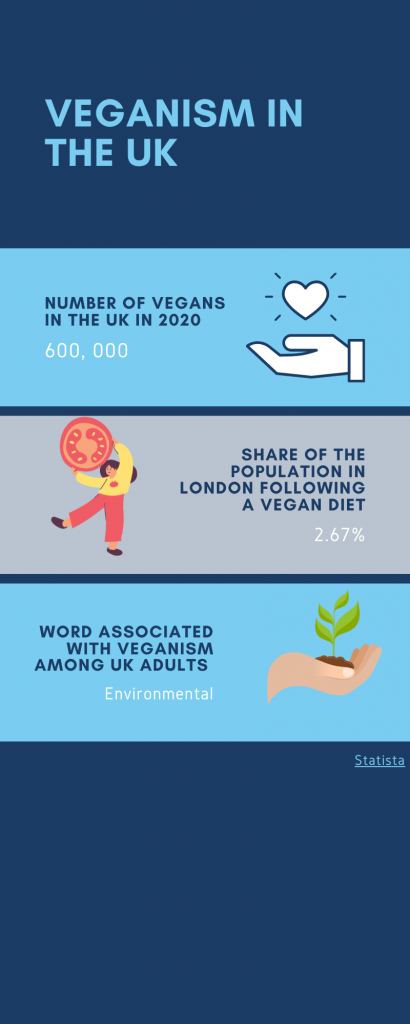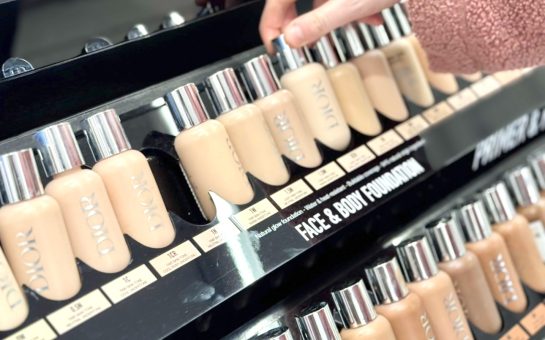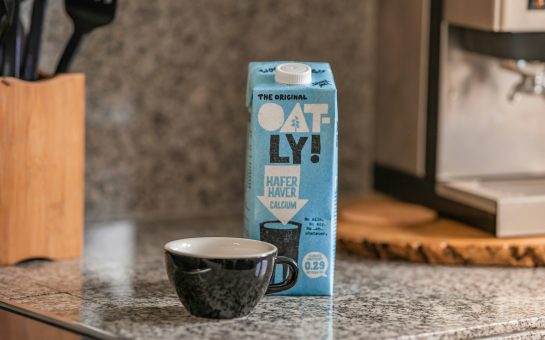The demand for natural beauty products has been on the rapid rise over the last five years alone, and the natural beauty industry isn’t showing any signs of slowing down.
Consumer preferences are showing that more people are buying natural and organic skincare products compared to previous years.
A survey carried out by Prodge showed that 34 percent of consumers preferred to buy natural and organic skincare when given the option to do so.
This change in preference has been a result of an array of reasons, a primary one being veganism.
Choosing skincare products based on the cruelty-free and ethical sourcing that often comes paired with natural products has led to a rise in these purchases by vegans.
In the UK alone there is a growing interest in reducing meat reduction and this has expanded in the choices made in cosmetic purchases also.

Aislin from the Veg Soc at The University of Oxford said: “I have personally made the switch to use more natural products because I am vegan.
“As many vegan companies care about animal welfare, they also tend to care about the quality of ingredients in the products given to the consumer”
With consumer preferences are leading the marketing strategy of many businesses, the opportunity of small natural beauty businesses to thrive has become more fruitful.
Natural beauty preferences and natural beauty practices have shown a tremendous rise in popularity because of the demand for this type of ingredient.
Small and Mighty Natural Beauty Businesses
Huda Beauty Organic is a natural beauty business that sells Qasil powder as a skincare and haircare product.
Qasil Powder is an all-natural ingredient and is a powder made from the leaves of the gob tree and is a product that is often used in Somalia for clear skin.
Huda Ahmed is the founder of Huda Beauty Organic and wanted to share this Somali beauty secret with the world, so started her business with this powder being at the forefront of it.
Her success, in the last year alone, has meant that her small business is now her primary source of income and is currently expanding to meet the demand for her natural beauty product.
By keeping employing women in Somalia, Huda is ethically paying her workers and sustainably sourcing her qasil.
She said: “People are finally going back to wanting simpler routines and they also know that they don’t have to buy 15 products to achieve something and we’ve been able to show that just by using this one product we haven’t had to formulate it yet.
“It is important for me and I like that people are able to see the results from this one product that comes directly from nature and it doesn’t contain anything, we don’t add nothing to it.
“We just pick the leaves, crush them and bag them and it does work.”
From this small business alone, the increase in sales highlights the rise in popularity of natural beauty products in the market.
Natural Vs Clean
Although small businesses within the natural beauty space are thriving, it seems that larger more traditional brands are also on a mission to change their marketing strategy.
Although many of the larger companies use chemicals to preserve their product, the use of the adjective ‘clean’ has often become synonymous with natural, encouraging more people to buy the products.
The parameters of being able to call a product clean are very ambiguous and can often be seen as a parallel to natural beauty by consumers.
Beauty Editor Keeks Reid said: “using the word clean doesn’t really often mean anything because clean is not a scientific word it doesn’t have any kind of meaning to it, it can mean whatever you want it to.
“When you’re labeling something as cruelty-free or vegan those are real claims, you can’t label something as cruelty-free and then test it on a bunny.
“No one can pull something up about being not clean because there are no parameters around it.”
The lack of ambiguity surrounding some of these marketing terms can lead to brands often greenwashing their products as a sales tactic.
With this marketing strategy becoming more and more apparent, consumers are choosing to make their skin care purchases from smaller businesses such as Huda Beauty Organic.
From veganism to making the switch from greenwashing brands, the preference for natural beauty products is becoming the preferred consumer choice.



